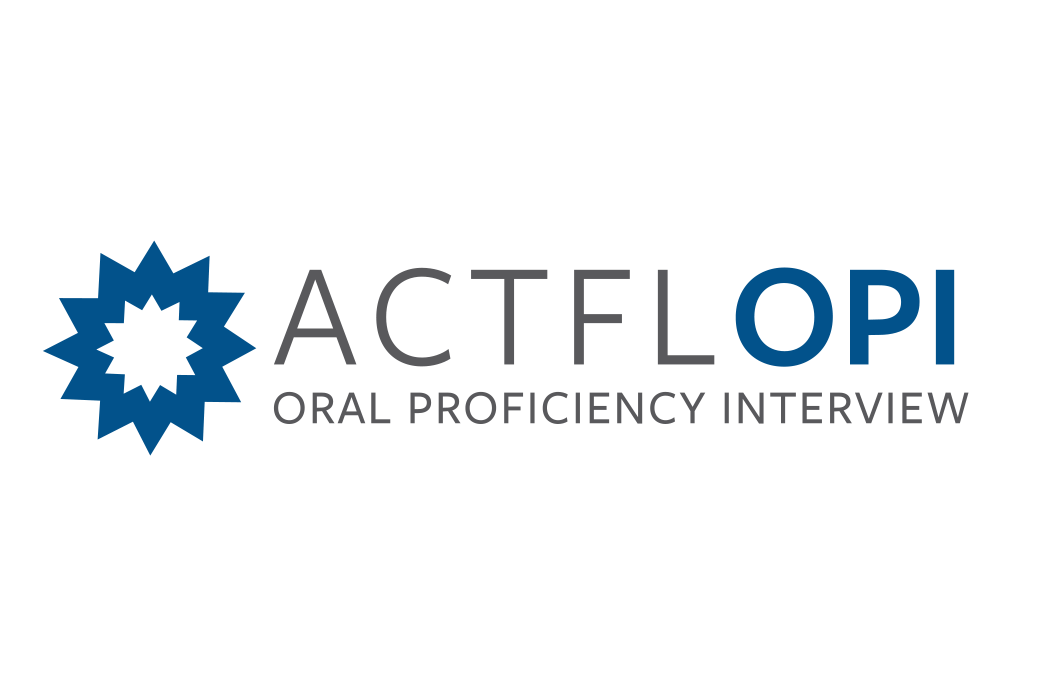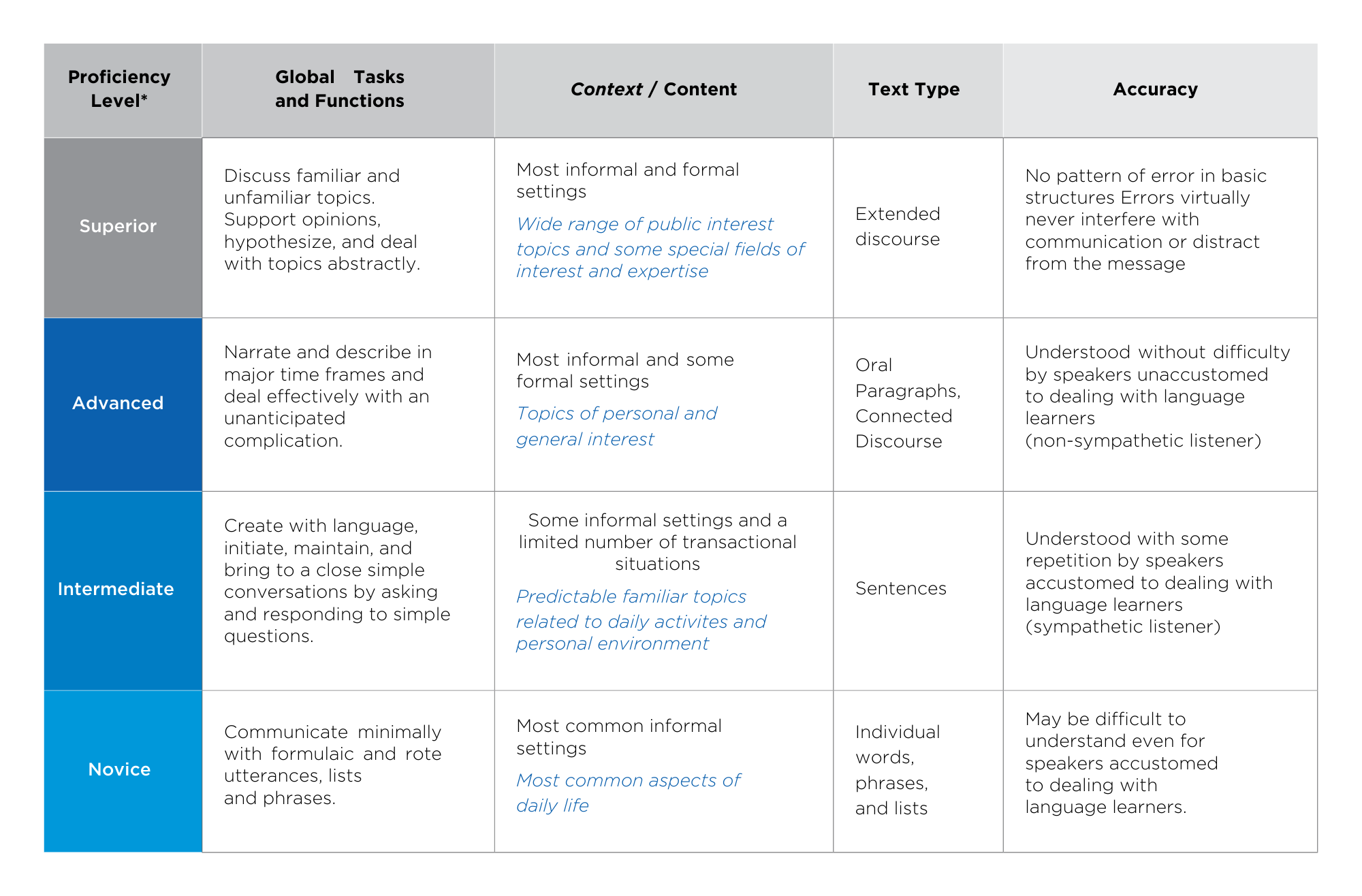Languages
Official ACTFL OPIs are currently available in the following languages (but are subject to change):
Afrikaans, Akan-Twi, Albanian, Algerian (ILR only), Amharic, Arabic (MSA), Armenian, Assyrian, Azerbaijani, Baluchi, Bengali, Bosnian, Bulgarian, Burmese, Cambodian, Cantonese, Cebuano, Chavacano, Chechen, Czech, Danish, Dari, Dutch, Egyptian (ILR only), English, Finnish, French, Ga, Georgian, German, Greek (Modern), Gujarati, Haitian Creole, Hausa, Hebrew, Hindi, Hmong/Mong, Hungarian, Igbo, llocano, Indonesian, Iraqi (ILR only), Italian, Japanese, Javanese, Jordanian (ILR only), Kazakh, Kikongo, Kinyarwanda, Korean, Krio, Kurdish, Lao, Lebanese (ILR only), Levantine (ILR only), Lingala, Malay, Malayalam, Mandarin, Mandingo-Bambara, Mongolian, Moroccan (ILR only), Nepali, Norwegian, Palestinian (ILR only), Pashto, Persian Farsi, Polish, Portuguese, Punjabi, Quechua, Romanian, Russian, Serbian/Croatian, Sindhi, Sinhalese, Slovak, Somali, Spanish, Sudanese (ILR only), Swahili, Swedish, Tagalog, Tajik, Tamil, Tausug, Telugu, Thai, Tigrinya, Turkish, Turkmen, Uighur, Urdu, Uzbek, Vietnamese, Wolof, Yemeni (ILR only), Yoruba, and Zulu.


